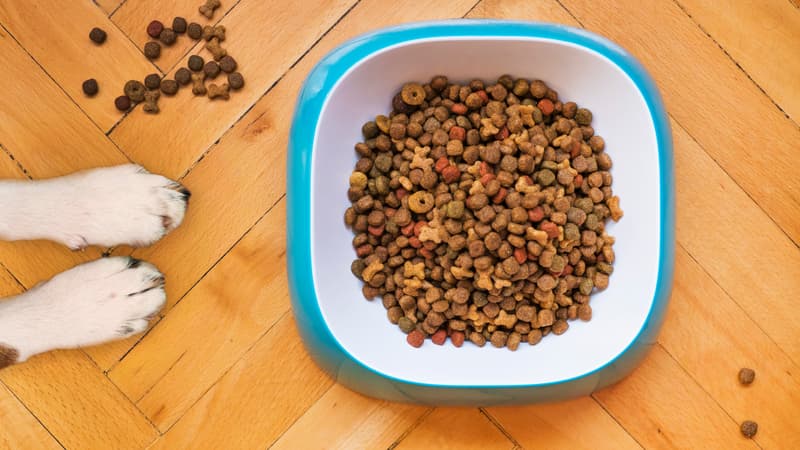Discreetly, last June the European Commission ended the authorization of the addition of sodium nitrite (nitrite salts) in croquettes, pâtés and treats intended for dogs and cats, notes Le Parisien.
This controversial additive (known by the code name E250) offers better preservation of certain foods (such as sausages) and, for example, gives ham that pink color that is not really natural but is more marketable.
Accused of participating in the formation of certain cancers, nitrite is the subject of an intense debate between those in favor of its ban and the food industry that maintains that its use is essential for the correct preservation of certain foods, in particular against botulism, a very serious illness.
Are animals better protected than humans?
But from expert reports to counter-knowledge, from trials to appeals, Europe has never managed to agree to generalize a ban in the agri-food industry, only a reduction in the quantities authorized in the framework was adopted last October. of the fight against cancer.
Pets therefore benefit from a stricter diet, since the additive will be completely prohibited. Manufacturers have until October 2024 to sell their stocks.
The result of an animal feeding lobby that is a priori less powerful in Brussels than that of delicatessen, believes a French MEP interviewed by our colleagues. “This has allowed scientists and politicians who work in animal nutrition, based on the same studies, to move forward calmly!” explains Richard Ramos, who has been fighting for several years to end this additive in human nutrition.
Another reason given is the omnipresence of nitrites in kibble and other industrial foods that constitute almost 100% of the daily diet of dogs and cats, while, in theory, meats processed with nitrites do not represent the majority of the human diet.
Towards new price increases?
The truth is that, under pressure from consumers, many players in the food industry now offer nitrite-free sausages. But it sells much more expensive.
For Richard Ramos, “we must think about the health of our fellow citizens, especially the most modest, because the richest buy more and more [produits, ndlr] without nitrites. A two-speed diet is being created with a risk of cancer for the poor. How can animals be better protected?” he asks.
For animal feed manufacturers, the non-authorization of nitrite salts will imply important changes in recipes that could lead to price increases. However, inflation has already arrived. In one year, the price of dog and cat food has soared in France by 18% according to NielsenIQ (April figures).
In 2022, the European pet food market grew by 5% to €29.1 billion, according to an industry federation.
Contacted by BFM Business, Purina and Mars Petcare, the two giants that share the pet food market, did not respond to our requests for comment.
Source: BFM TV


